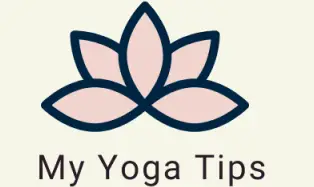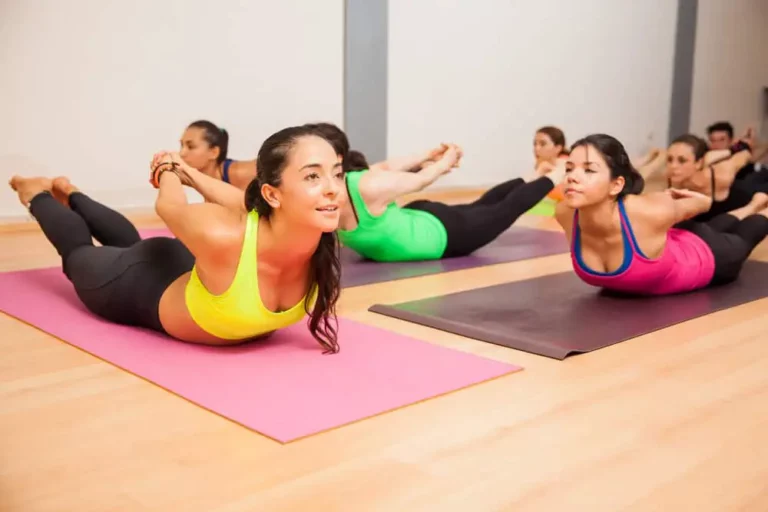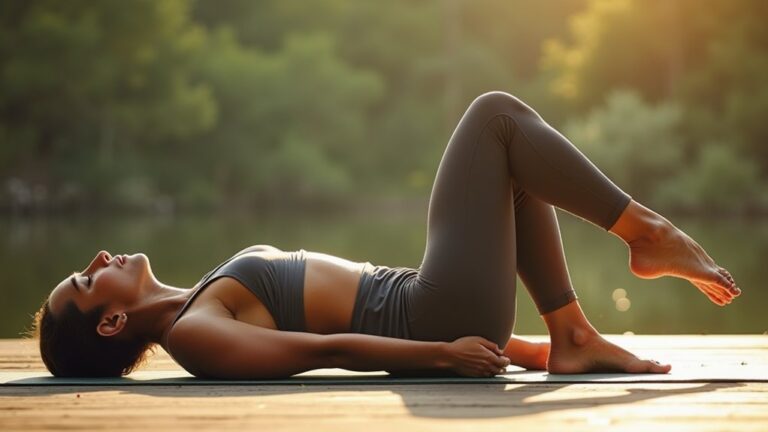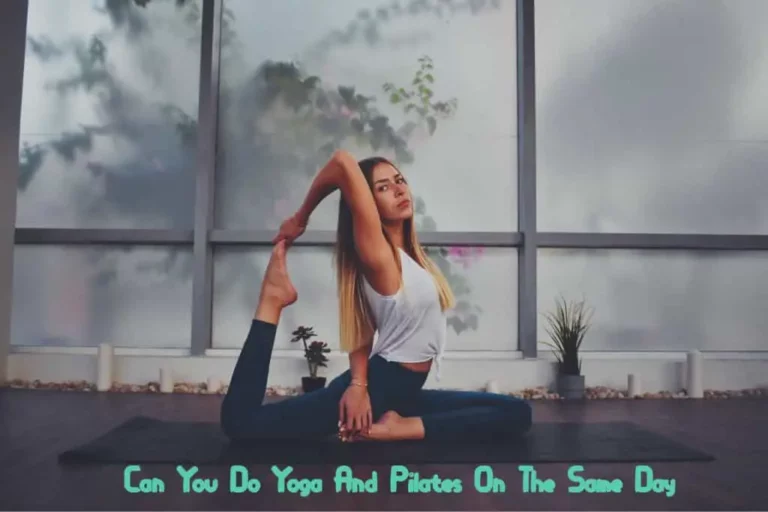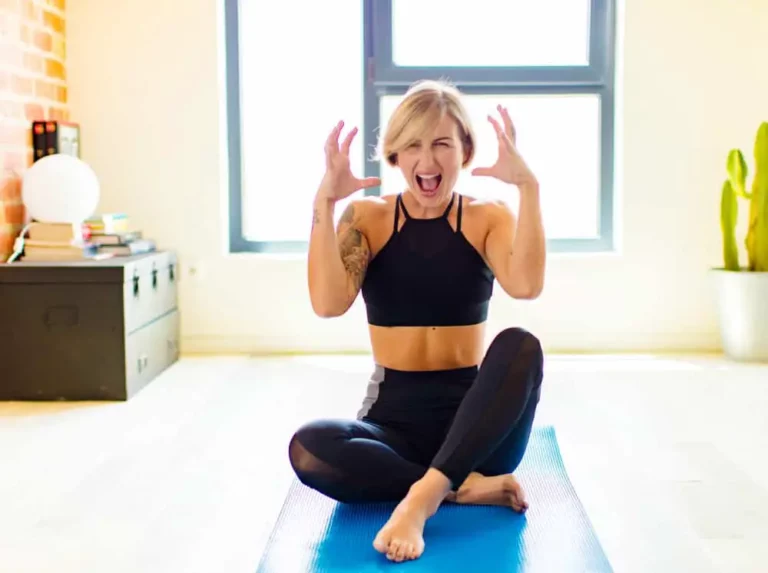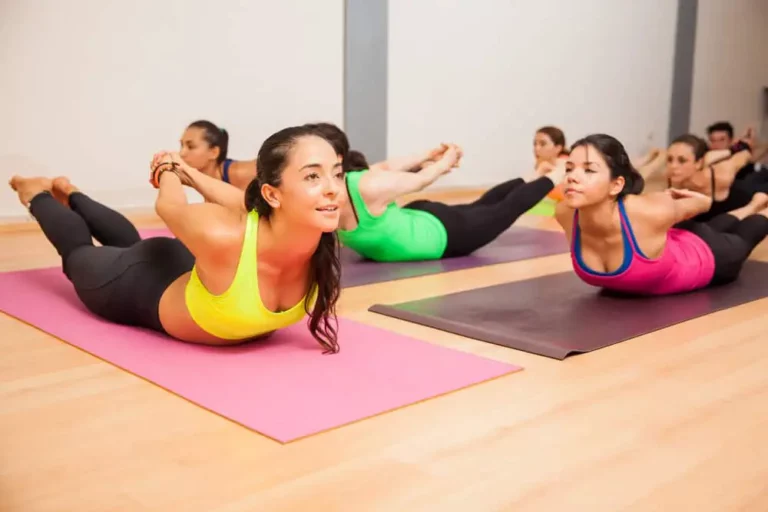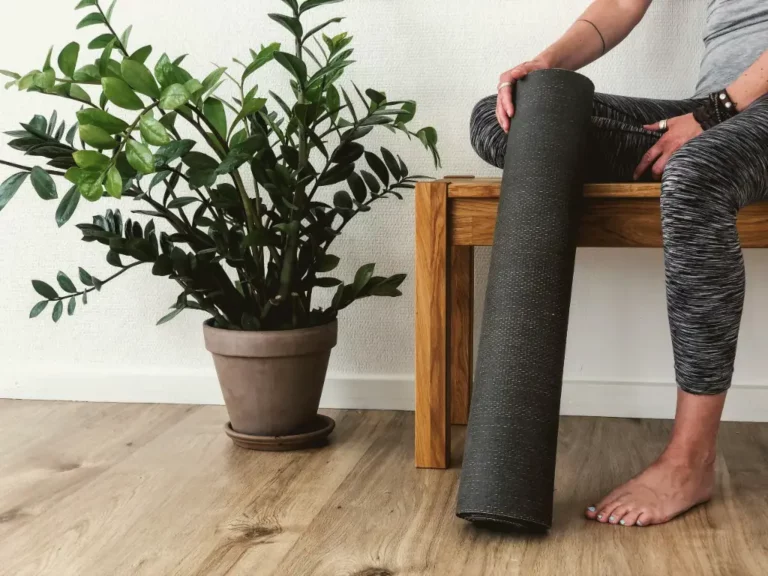Is It Safe To Do Yoga Alone? What You Must Know
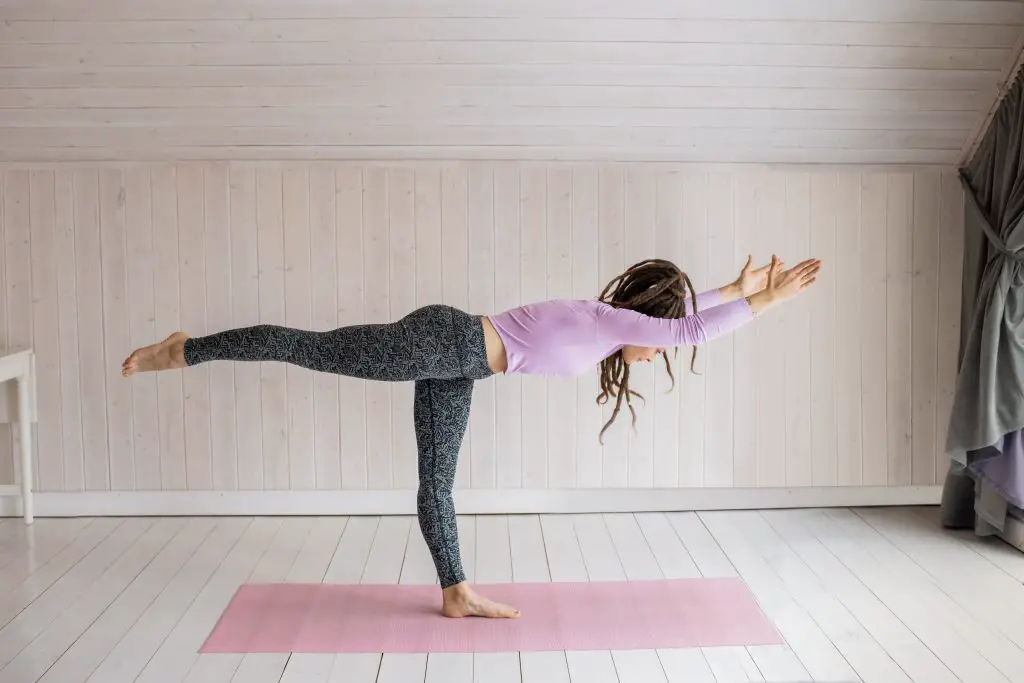
If you are eager to start incorporating yoga into your daily routine but do not have access to classes at a yoga studio, you might be wondering: how safe is it to practice yoga alone at home without the guidance of an instructor?
Practising yoga alone at home as a beginner can be dangerous if you do not know the correct form for the postures or you do not warm-up and prepare for the movements and postures properly. When you start doing yoga alone at home, follow along with beginners’ classes on YouTube to learn the basics.
Yoga is wonderfully accessible – you do not need to pay for expensive classes to experience its benefits. It does not matter where you are or who you are with. As long as you have a mat and some space, you can practice yoga. Here, we discuss what you must know before you start doing yoga on your own.
What Are The Risks Of Doing Yoga Alone?
Yoga is a gentle, low-impact activity that releases tension in our muscles, strengthens our bodies, improves our flexibility, and calms our minds. Done safely and correctly, yoga can actually decrease our risk of injury.
However, even though yoga-related injuries are far rarer than injuries sustained in more high-intensity workouts, there are still some risks:
- Muscle strains and sprains.
- Hip, knee, and lower leg injuries.
- Lower back injury.
- Neck stiffness and pain.
- Shoulder injuries (rotator cuff).
- Certain poses are unsafe during pregnancy.
- It can exacerbate existing injuries like tendonitis.
Is It Safe To Start Doing Yoga Without An Instructor?
If you start doing yoga at home by copying poses you see on Instagram, the likelihood of you hurting yourself is high. There’s a lot more to yoga than bending your body into certain shapes. If you do not know how to prepare for and move into the postures and poses correctly, you risk injuring yourself.
While there are risks involved with starting to practice yoga alone at home, it can be done safely. If you take the necessary precautions and dedicate time to mastering the basics before moving on to more advanced poses, you can safely do yoga alone at home.
One of the positive outcomes of the Covid pandemic is that there are now so many online resources available for people wanting to incorporate yoga into their lives. It is possible to get high-quality, safe yoga instruction on YouTube for free.
How To Safely Practice Yoga Alone At Home
The benefits of yoga for physical and mental health are wide-ranging. Do not let your fear of getting injured hold you back from starting yoga. You can practice yoga safely at home as a beginner if you keep the following in mind:
- Your ego is your worst enemy in yoga. Initially, when you start practicing yoga, your poses will not look like those of the Instagram yogis. That’s not only okay, but it is totally normal. Recognize that you need to ease into your yoga practice and begin with the basics. Skipping steps and trying to do advanced poses from the get-go is sure to get you injured.
- Search for a yoga instructor on YouTube that offers guided sessions for beginners. You should do the whole session in real-time with a yoga teacher, following all their instructions. This is the best way to learn the basics of how to practice yoga safely without going to live classes at a yoga studio.
- Always start your yoga sessions by stretching and warming up your whole body. It is so important to prepare your muscles and joints for movement. Meditative breathing at the start of your practice helps to ground you in your practice. Breathwork and meditation are as much a part of yoga as the poses themselves.
- When you are just starting out, avoid advanced poses and inversions, like head and shoulder stands. Without having perfected the basics, you can easily fall over and injure yourself.
- Focus on getting the basic postures right. Practice yoga in front of a mirror so that you can check your form and make sure you are doing each pose safely. Proper form is absolutely essential. You can injure yourself if you do not get the form of the poses right.
- If you are pregnant, make sure that you look for yoga instruction on YouTube that is specifically aimed at pre-natal women. There are certain poses you should avoid completely during pregnancy as it puts the baby at risk of miscarriage. Planks, bicycles, crow pose, crunches, deep spine twists, lying flat on your back, and poses that put pressure on your belly are dangerous.
- Listen to your body and practice good judgement above all else. Your yoga practice is for you and nobody else. You do not need to impress anyone! Progress slowly with your yoga practice. This will ensure you avoid any risk of injury.
The Advantages Of Doing Yoga Alone
Ancient Yogic texts from as early as the 17th century actually recommend that you practice yoga alone. The Gheranda Samhita says that it is best to learn the basics from a master and then practice on your own.
When you do yoga alone, you can move at your own pace and follow your natural rhythm. You won’t have to feel self-conscious about keeping up with other people in a yoga class.
Self-studying yogis develop far greater discipline around their practice. You have to show up for yourself when you do not have a scheduled class to join.
A practical advantage of practising yoga alone at home is that you do not have to drive to the gym or yoga studio. You also save money, as yoga instruction can be very expensive.
Read my article about 6 Ways To Make Your Yoga Routine Actually Stick
Conclusion
Doing yoga alone at home is safe as long as you learn the basic movements and postures from a qualified yoga instructor. You don’t have to attend yoga classes to start practising yoga. There are plenty of fantastic resources available online.
To avoid injury when your first start doing yoga alone at home, start with the fundamentals and gradually advance once you have mastered the form of the basic poses. Always stretch and warm your body up before a yoga session.
